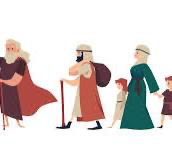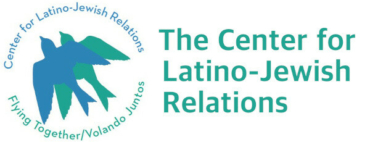01-17-2025 Torah Commentary

שאלו שלום ירושלים
Pray for the peace of Jerusalem
This week we begin the Bible’s second book, Sefer Shmot, known in English translation as the Book of Exodus. According to tradition, the book’s first weekly parashah also goes by the same name: Shmot. You will find this week’s section in The Book of Exodus 1:1-6:1.
Sefer Shmot is a very different kind of book than Genesis. We can argue that Genesis is about individuals’ lives within our Jewish family. As such, we often feel connected to Genesis’ characters in very personal ways. The book is so personal that its non-Jews readers also feel a connection to Genesis’ personages. Genesis then is a book that deals with the beginnings of our family.
As is the case with any family, Genesis’ characters often provoke in us both a sense of love and anger. As in life, reading Genesis we never think that we completely understand Genesis’ characters. The book takes us across a wide spectrum of human emotions: from love to anger, from frustration to pride. The Torah’s first book teaches us to take the bitter with the sweet, to tolerate human differences, and to understand that love means learning to accept the other even when we do not understand the other. In that sense, Genesis is less about the beginning of creation but rather more about the understanding that creation is composed of multiple beginnings.
We now turn to the Book of Exodus. At first glance it appears that the Torah’s second book begins where the first one left off, but we soon see that Exodus is a very different kind of book. Although Exodus has several important central characters such as: Moses, Aaron, Miriam, and Pharaoh, we learn that this is a book not about individuals but about a “nation that is to be born.” In Exodus we learn how G-d transformed our family into a nation.
In Exodus the characters are no longer single players but rather part of a team. Perhaps nothing better underlines this national idea than the book’s very name. Sefer Shmot means the Book of Names. It is as if the book is teaching us that to be free we have to first have a name. Exodus begins with our being a collection of slaves, ha’ivriim (the Hebrews). It is only as the text progresses that we become individuals with specific names.
Is not the depriving of people’s names, depriving them of their individuality typical of tyrants? Slaves are not asked their name, but rather their masters give them their names. It is the master’s role to deprive a slave of his or her sense of dignity, to take away the slave’s sense of self, and to force the person to live in an eternal present.
From this perspective, the Book of Exodus is not about our leaving Egypt, as the English translation would mislead us to believe, but rather about our entering Sinai, which in the Bible symbolizes freedom. This is a book that speaks to us and makes us think of those who are caught in the web of human trafficking and also deprived of their freedom.
In Sefer Shmot we learn that to be free is to find dignity in our names, to recognize our past and to have hopes for our future. Might this be the reason that this, the world’s most powerful book of liberation begins with names? What do you think?
YouTubes for the week
The Musical Work of Hila ben David
Shir LaMaalot
Ana BaKoach
HALLELUJAH
The National Prayer
Please pray for Israel’s soldiers and the safe return of all of the remaining hostages.
